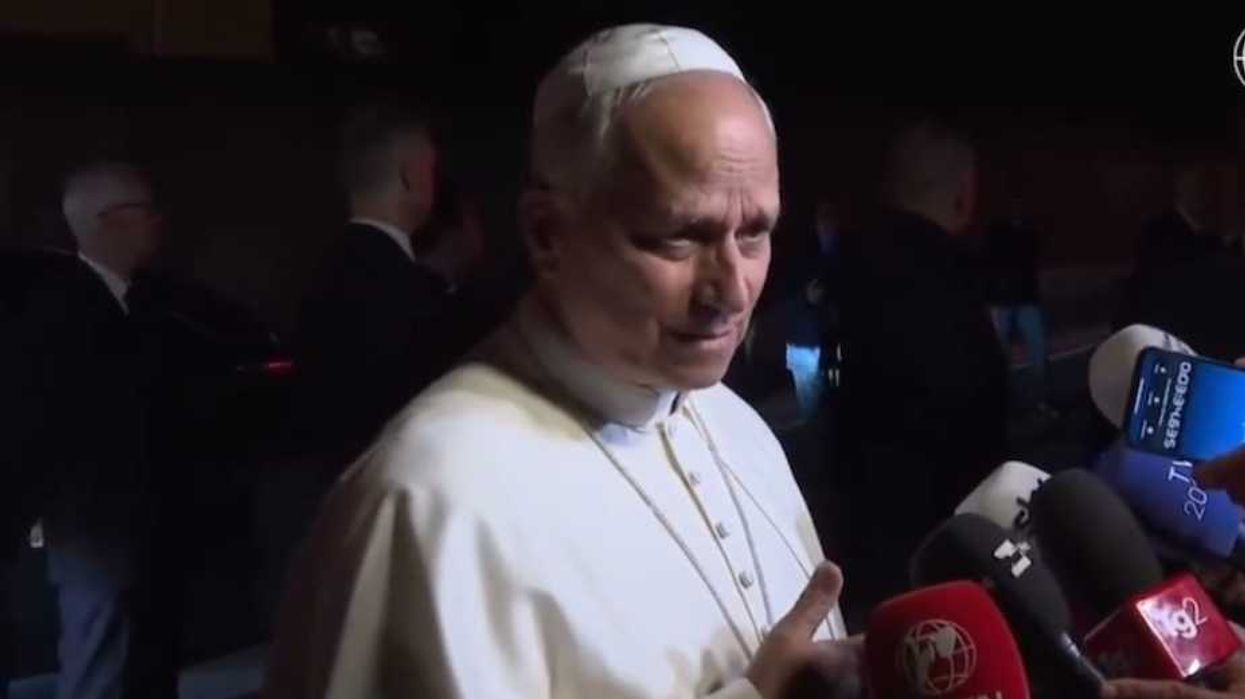When Pope Leo XIV spoke from Castel Gandolfo this week, he didn’t mince words. The first American-born pontiff condemned the “inhuman treatment of immigrants in the United States,” challenging the moral consistency of Catholic politicians who claim to be pro-life while supporting harsh immigration policies.
“Someone who says ‘I’m against abortion’ but I’m in agreement with the inhuman treatment of immigrants in the United States, I don’t know if that’s pro-life,” Pope Leo said, in remarks that have since ricocheted across political and religious circles.
The Pope’s comments came amid controversy surrounding a proposed lifetime achievement award for Illinois Senator Dick Durbin, a Democrat known for his advocacy on immigration and his support for abortion rights. Chicago Cardinal Blase Cupich had nominated Durbin for the honor, citing his “unwavering support of immigrants.” But Springfield Bishop Thomas Paprocki, who barred Durbin from receiving Communion in 2004, objected. The tension escalated until Durbin himself declined the award.
“I understand the difficulty and the tensions,” Pope Leo said. “But… it’s important to consider many issues related to the teaching of the Church.”
That’s the heart of the matter. Catholic social teaching is not a buffet. It demands a consistent ethic of life—one that honors the dignity of the unborn, the incarcerated, the poor, and the migrant. Pope Leo’s words reminds that being pro-life is not just about opposing abortion; it’s about opposing all forms of dehumanization.
This is not a new teaching. Pope Francis, Pope Benedict XVI, and Saint John Paul II all emphasized the interconnectedness of life issues. But Pope Leo’s American roots—and his willingness to name the United States directly—make this intervention especially potent.
The White House was quick to push back. Press Secretary Karoline Leavitt rejected the Pope’s characterization, stating, “I would reject there is inhumane treatment of illegal immigrants in the United States under this administration.” She added that the government is “trying to enforce our nation’s laws in the most humane way possible.”
Leavitt also emphasized that President Trump “has done more to protect innocent life than any president in history,” citing his stance on abortion and his judicial appointments. “We welcome the Pope’s support for protecting innocent life,” she said, “and hope he will continue to advocate for the unborn.”
But the facts tell a different story. From family separations and prolonged detentions to the expansion of expedited removals and the use of ankle monitors on asylum seekers, the U.S. immigration system has routinely treated vulnerable people as threats rather than neighbors. The language of “illegality” obscures the humanity of those fleeing violence, poverty, and persecution.
Pope Leo’s challenge is not just political—it’s pastoral. He is calling Catholics to examine their consciences. Can a person claim to be pro-life if they support policies that traumatize children, criminalize desperation, and deny refuge?
This is especially relevant for Catholic lawmakers and voters. Too often, abortion becomes the sole litmus test for moral credibility, while other life issues are dismissed as “political.” But as Pope Leo reminds us, “Church teaching on each one of those issues is very clear.”
His words also offer a path forward. “I would ask, first and foremost, that there be greater respect for one another and that we search together… to find the way forward as Church.”
That search must begin with humility. It must include listening to migrants, refugees, and border communities. It must reckon with the racial and economic injustices embedded in our immigration system. And it must resist the temptation to weaponize faith for partisan gain.
Pope Leo XIV is not asking American Catholics to abandon their convictions. He is asking them to deepen them—to see the face of Christ not only in the unborn child but in the migrant mother, the detained father, the asylum-seeking teenager.
In doing so, he is reminding the faithful that pro-life is not a slogan. It is a summons. And it demands nothing less than a revolution of compassion.
-
Hugo Balta is the executive editor of the Fulcrum and the publisher of the Latino News Network. Balta is the only person to serve twice as president of the National Association of Hispanic Journalists (NAHJ).




















